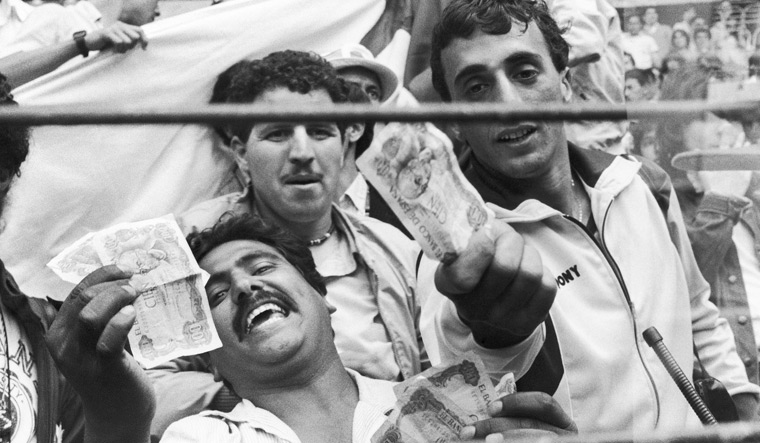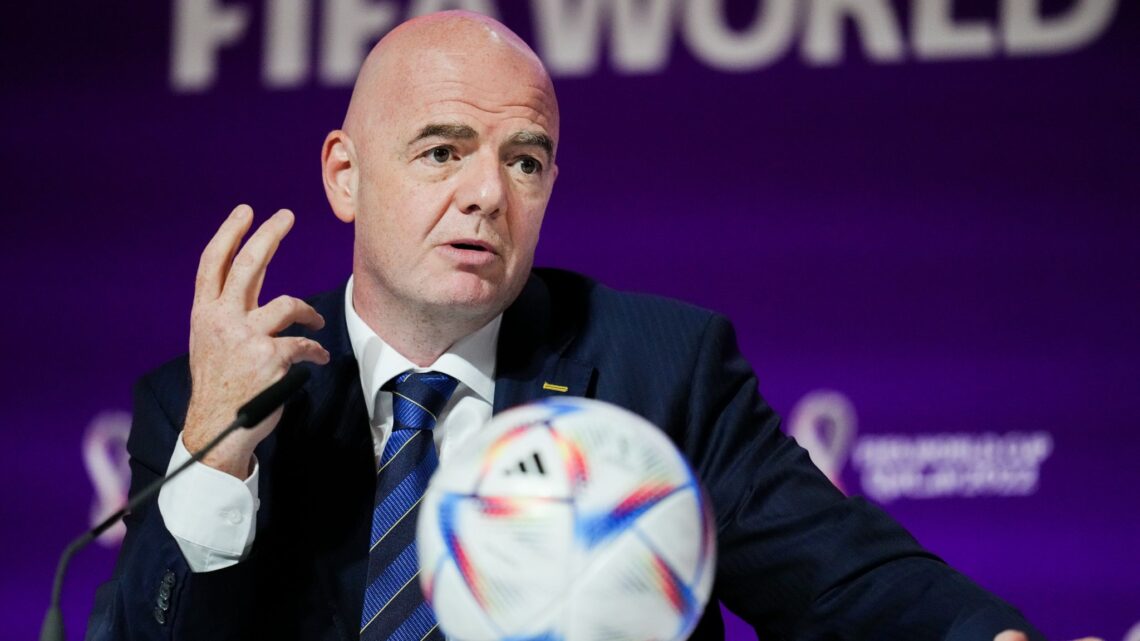The World Cup in Qatar has recently come to its conclusion. The upsets, the shootouts, the storylines: despite the underlying controversies surrounding the location of the tournament, FIFA’s grandest showcase of football at least lived up to expectations on the pitch. However, FIFA and Gianni Infantino’s plans for an expanded world cup could be detrimental to the drama that we have all come to love on the international stage. The problem? Three-man groups.
On January 10th, 2017, FIFA announced that alongside the expansion of the World Cup from 32 teams to 48, the first stage would be divided into 16 groups of 3 teams instead of the usual 4 team format. Outside of the fact that more games will be played, risking the fitness of the players after playing full domestic league seasons, there’s a potential risk of corruption.
In a regular, four team group, both group matches can be played at the same time. This helps to create the drama that we saw in cases like Group E in Qatar: Whilst Japan and Spain ultimately qualified, at one stage during the final matchday, Costa Rica had snuck into second place – although that lasted for less than five minutes. In any case, the fact that anything can change up to the final whistle in the final game creates tension. In a three team group, however, there is no way all the teams within the group can play at the same time. “The Disgrace of Gijon” during the 1982 World Cup should prove as an example as to why this will cause issues.
The 1982 World Cup was hosted by Spain and contained a first-round group consisting of Austria, Algeria, Chile and West Germany. The difference between this World Cup and World Cups of modern history is that not all teams within a group played at the same time. Algeria and Chile played their final match the day before Austria and West Germany closed off the group. Algeria, who had upset West Germany at the start of the group stage, beat Chile 3-2, leaving the group in this position:

With Austria ahead of Algeria on goal difference and West Germany two points outside of qualification, a German win over the Austrians would see both teams through, knocking out Algeria in the process. Both teams knew this and used this to their advantage. At El Molinón in Gijon, A barrage of attacks from West Germany led to them taking the lead in the 10th minute through Hamburger SV’s Horst Hrubesch.
At this point, the game effectively came to an end. Both teams passed the ball around in their own halves, sent long balls over the top with nobody to run onto them, and took shots that would make Darwin Nunez and Timo Werner look like Messi and Lewandowski. It was clear: both teams were going to take this result to knock Algeria out. Austrian and German fans weren’t fully supportive of the idea: West German commentator Eberhard Stanjek refused to commentate, whilst his Austrian counterpart Robert Seeger asked fans at home to turn off their TVs. The local Spanish newspaper put their report of the game in their Crime section.

Austria gave up their top spot to West Germany and were knocked out of the world cup in the next round by France. West Germany made it all the way to the final but were beaten by Italy. The Algerian Football Federation made an official appeal to FIFA, and additionally claimed that Scottish referee Bob Valentine should have intervened. FIFA rejected the appeal. Debates as to whether Austria and West Germany actually colluded raged on for years after the event, but 25 years later, Hans-Peter Briegel, who played in the game, eventually admitted that the result had indeed been arranged.

Although simultaneous games were enforced after the Disgrace of Gijon, that cannot happen within three team groups, with one team always being left out. Even if there isn’t an explicit arrangement for match-fixing, the risk of tacit collusion within the 2026 World Cup will be high if Gianni Infantino’s plans go ahead.
Three-man groups aren’t a necessity. Splitting the 48 teams into 12 groups of 4 will maintain the status quo of 4-man groups – with a round of 32 stage potentially adding to the drama of the knockouts. Another format, mentioned by Arsène Wenger, involves two sets of six 4-team groups. For each set, the top two teams in each group will qualify, as well as the four best performing third place teams to create a knockout stage for the set, starting with a round of 16. The winners of each “set” will then create a grand final. Although the increased number of matches (from 64 to 104) would potentially lead to a dilution of interest – nobody wants to watch 104 games – that can be supplemented by the storylines, shock and suspense that come with a standard group.
Generally, Gianni Infantino and FIFA have a choice on their hands. The World Cup just passed showcased the value of 4-man groups. Changing this runs the risk of taking away one of the most important aspects of international football. Whilst it has been mentioned by FIFA that the number of teams in each group is not set in stone, there is still an anxious wait to see if those in charge will choose to maintain the glorious drama and emotions that come with the grandest display of tournament football.
Well, 3 team or 4 team groups, none of these matters if Nigeria fail to qualify for the World Cup again…

